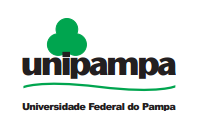Historic
The Postgraduate Program in Science Teaching (PPGEC) is formed by the Professional Master’s Course in Science Teaching, authorized for operation by CAPES on 12/14/2011, with Concept 3, and recognized by the MEC by Ordinance No. 1,324 of 11/08/2012 with publication in the D.O.U. on 11/09/2012, Section 1, p.8-10. The Program began its activities in 2012, with 13 students, and currently has 32 students. The Program’s field of action, due to its geo-educational insertion within the scope of UNIPAMPA, preferably involves Basic Education schools in the border region of the southern half of Rio Grande do Sul, which is fragile in socioeconomic and educational terms, according to with IDS and IDEB indicators. The Program has permanent teachers from the Bagé and Caçapava do Sul Campuses of UNIPAMPA and collaborating teachers. The main unit of the Program is the Bagé Campus, where classes take place during the regular academic semesters of the stricto sensu Postgraduate course at UNIPAMPA, from Thursday nights to Saturdays, and, in periods concentrated during the school vacation months in Basic Education. , subject to the availability of teachers and students.
Concentration area
Science teaching
Goals
The Program’s general objective is to improve the professional qualifications of teachers who work preferably in Basic Education, in the areas of Physics, Chemistry and Natural Sciences, in joint work between UNIPAMPA teachers and teachers from the schools where they work. To this end, the Program seeks to fulfill specific objectives that cover two general dimensions of knowledge: the training dimension and the professional practice dimension, outlined as follows:
provide an increase in the innovation capacity of teachers for the planning and evaluation of innovative pedagogical proposals, theoretically based and associated with methodological designs, through a curricular proposal that enables the deepening of theoretical-methodological assumptions for understanding the relationships between teaching and learning;
provide the development of skills in the technical-pedagogical use of contemporary technologies and their incorporation into pedagogical proposals involving experimental and computational practices, with the support of infrastructure and appropriate curricular proposals, and its teaching staff;
provide monitoring and guidance to study projects and final works, with the support of adequate infrastructure and its teaching staff; It is,
provide opportunities for professional internships, exchange of knowledge and experiences, through exchanges, and other forms of improvement.
Graduate Profile
It is intended that graduates trained by the Program mobilize skills and competencies from training and professional practice for innovative actions in the ways of teaching, and in the use and development of resources, with the potential to reconfigure the educational environment, involving the teacher, the school and students in understanding and transforming the reality where they live.
